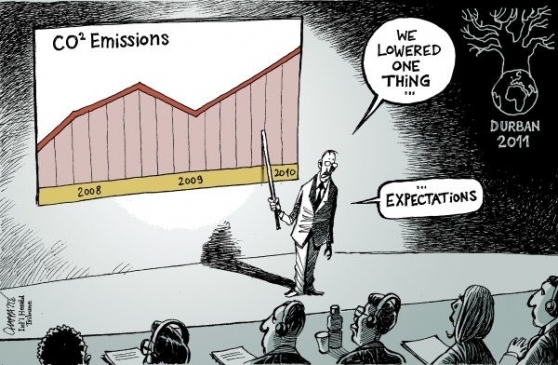Climate Change is the Visible Problem – Regenerative Sustainability is the Invisible Solution
 February 18, 2021 at 06:34AM
February 18, 2021 at 06:34AM  Sustainability 2030 |
Sustainability 2030 |  Post a Comment |
Post a Comment | As Stewart Brand said in the introduction to the Whole Earth Catalogs,
"If we are going to act like gods, we might as well get good at it."
And Biomimicry is one key, and in a sense, one of the legacy's of the Whole Earth movement. Like Buckminster Fuller's comprehensive antipatory design science, Biomimicry is (1) the exploration and understanding of nature, i.e., the environment, as the technology and economy of an exquisitely evolved and designed regenerative life support system (living machine) that has been tested and developed over 3.8 billion years of evolution (see-the time line of evolution) and then (2) applying those battle-hardened principles to all aspects of human activity--designing, creating, and managing of society, from industrial products, to urban and regional systems, to public policy, business, the economy, etc., i.e., Sustainability 2030 and the leading edge of the sustainability response.
Sustainability 2030's (S2030) research/practice program addresses the following key questions:
1. How can you/we become effective, powerful, even transformational forces for sustainability?
2. What is the program required for ultimate sustainability success--the end game?
3. Who has part of the answer now (current sustainability champions), how far do they take us, and how can we harness the state-of-the-art leading edge sustainability to an innovative research/practice program that gets us to ultimate success in the limited time remaining? (more)
1. Assessment: Storm Clouds & Hope
Advance, accelerate, and amplify an accurate understanding of the sustainability challenge and how to harness the power and potential of sustainability for an effective response before time runs out. The Strategic Sustainability2030 Institute (S2030I) is a web-based think/do tank (more).
UPCOMING:
April 2013, Chicago, APA National Conference.
May 13-15, 2013, Seattle, Living Future unConference.
PAST (2012):
October 23-26, Portland, EcoDistrict Summit 2012.
July 31-Aug. 4, Portland, Ecosystem Services Conference.
May 2-4, Portland, The Living Future Unconference for deep green professionals.
June 15-18, Brazil, Rio+20 United Nations Conference on Sustainable Development
as Buckminster Fuller observed, is
"to make the world work for 100% of humanity, in the shortest possible time, through spontaneous cooperation without ecological offense or the disadvantage of anyone."
This goal is the essence of sustainable development! The Buckminster Fuller Institute (BFI) provides access to Bucky's legacy, including his comprehensive anticipatory design science revolution. Check out their website, their programs, and engage.

Caption: "Sadly, the only proven way to achieve global GHG reductions so far has been economic recession." Comment: Fortunately, shifting to 100% renewables would catalyze the global transition to durable prosperity and community well-being in a way that would eliminate GHG production AND grow the economy <<continued>>. (See also: strategic sustainability, natural capitalism, its four strategies, and RMI's Reinventing Fire [energy] Program.)
Green Urbanism - Formulating a series of holistic principles
Green Growth - Recent Developments (OECD)
Foundation Earth - Rethinking Society from the Ground Up
Reinventing Fire - A key transformational initiative of RMI worth knowing/watching.
A Quick-Start Guide to Strategic Sustainability Planning
NEW Report: Embedding sustainability into government culture.
New STARS LEED-like sustainable transportation tool for plans, projects, cities, corridors, regions.
Strategic Community Sustainability Planning workshop resources.
Leveraging Leading-Edge Sustainability report.
Winning or losing the future is our choice NOW!
How Possible is Sustainable Development, by Edward Jepson, PhD.
Legacy sustainability articles -- the Naphtali Knox collection.
Stephen Cohen's Weekly Column in the New York Observer
Inspiration: If I had an hour to solve a problem and my life depended on the solution, I would spend the first 55 minutes determining the proper question to ask, for once I knew the proper question, I could solve the problem in less than 5 minutes. Albert Einstein
 February 18, 2021 at 06:34AM
February 18, 2021 at 06:34AM